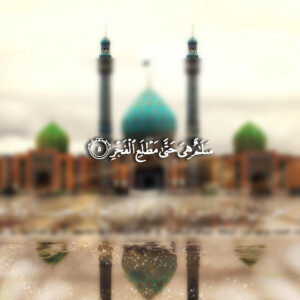Duas, Namaz and Ziyarats are an integral part of the teachings of the Holy Prophet of Islam (sawa) and the Ahle Bayt (as). For each of these, one can supplicate in His own language and his own words. However it is recommended to turn to Allah through the words of Holy Prophet (sawa) and the Imams (as). Indeed they are the chosen servants of Allah, those through whom he chose to reach His message to mankind.
Such is the depth and volume of supplications, namaz and ziyarats that it would take a lifetime for an individual to recite them completely. Our scholars have collected these gems in their books like Mohajjud Dawaat and Mafatihul Jinan. We also have collections of Duas from every Imam like Sahifa-e-Sajjadiyyah (supplications from Imam Sajjad), Sahifa-e-Alawiya (Imam Ali), Sahifa-e-Fatemiyyah (Hazrat Zahra) and even Sahifa-e-Mahdiviyyah (Imam Mahdi).
In this section, we will bring forth those duas, namaz and ziyarats which has come for and from Imam Mahdi (as). The list is not comprehensive and additions will be made to this list from time to time.
One should keep in mind that reciting these duas or offering these namaz or sending salutations to Ahle Bayt (as) through the words of ziyarat are a means of attaining proximity to them.
|
Ziyarats for Imam Mahdi (as) |
Duas for Imam Mahdi (as)
|
|
Ziyarats from Imam Mahdi (as) |
Duas from Imam Mahdi (as)
|
|
Recommendations from Imam Mahdi (as)
|
Best times and places for Dua
There are times and places when the possibility of acceptance of these supplications is higher – for example, reciting duas in the shrine of Imam Husain (as) and in the night of Qadr. Some of the best recommended times for praying for the reappearance of Imam Mahdi (as) are
- Every day after morning prayers
- The day of Friday (the entire day)
- The day after Eid ul-Fitr
- The day of Eid ul-Azha
- The day of Ghadeer
- The day of 15th Shabaan
- In the nights of Qadr (19th, 21st and 23rd Mahe Ramazan)
- After crying for the sake of Imam Hussain (as)
- In the tombs of Holy Imams (as)
- In front of the Holy Kabah
- While reciting the night prayers (Shab Namaz)

